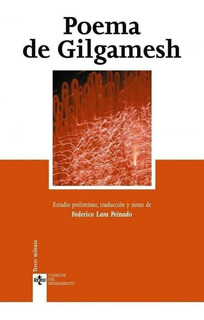

At the time of the poem, Old Babylonian Uruk had between 50,000 and 80,000 inhabitants and was probably one of the biggest cities in the world. The shepherds who tend their flocks three days away from Uruk, providing the city with food and wool, know their king and talk about him familiarly. Few barriers separate them, so that a trapper from the countryside can gain immediate audience with the king, and the king knows the temple harlots by name.

Its citizens and their king live in close proximity to one another. Uruk, the Mesopotamian city near the fertile banks of the Euphrates, where the poem’s action begins and ends, is one of the earliest cities in the world. He reflects on the work of leading poets such as Charles Olson, Louis Zukofsky, and Yusef Komunyakaa, whose own encounters with the poem are revelatory, and he reads its many translations and editions to bring it vividly to life for readers.Gilgamesh is decidedly remote from our world and time. In this illuminating book, Schmidt discusses the special fascination Gilgamesh holds for contemporary poets, arguing that part of its appeal is its captivating otherness. Its translation, interpretation, and integration are ongoing. The discovery of a pre-Noah flood story was front-page news on both sides of the Atlantic, and the poem's allure only continues to grow as additional cuneiform tablets come to light. The poem had to be reassembled, its languages deciphered. Fragments of the poem, incised on clay tablets, were scattered across a huge expanse of desert when it was recovered in the nineteenth century. Schmidt describes how the poem is a work in progress even now, an undertaking that has drawn on the talents and obsessions of an unlikely cast of characters, from archaeologists and museum curators to tomb raiders and jihadis.

Acclaimed literary historian Michael Schmidt provides a unique meditation on the rediscovery of Gilgamesh and its profound influence on poets today. It is a story of monsters, gods, and cataclysms, and of intimate friendship and love. Lost for centuries to the sands of the Middle East but found again in the 1850s, it tells the story of a great king, his heroism, and his eventual defeat. It is also the newest classic in the canon of world literature. Gilgamesh is the most ancient long poem known to exist. Reflections on a lost poem and its rediscovery by contemporary poets


 0 kommentar(er)
0 kommentar(er)
